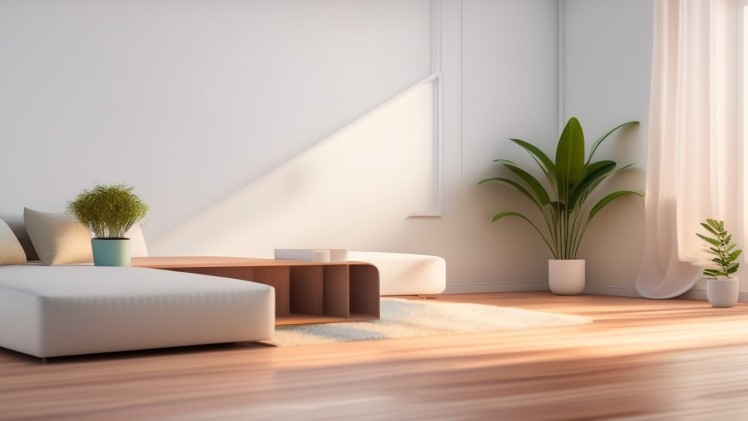In a world that often equates success with accumulation, the concept of minimalism stands as a refreshing counterpoint. Minimalism is not merely about decluttering your physical space; it’s a lifestyle choice that encourages individuals to focus on what truly matters. By embracing less, we can lead fuller, more meaningful lives. This article delves into the principles of minimalism, its benefits, and practical steps to adopt a minimalist lifestyle.
Understanding Minimalism
At its core, minimalism is about intentionality. It involves stripping away the excess—be it material possessions, commitments, or distractions—to make room for what genuinely enriches our lives. Minimalists advocate for quality over quantity, emphasizing experiences, relationships, and personal growth over the relentless pursuit of more.
The Philosophy Behind Minimalism
Minimalism is rooted in various philosophical traditions, including Stoicism and Zen Buddhism, which emphasize simplicity and mindfulness. These philosophies encourage individuals to reflect on their values and priorities, leading to a more intentional way of living. By understanding what is essential, we can make conscious choices that align with our true selves.
The Benefits of Minimalism
- Reduced Stress and Anxiety
One of the most immediate benefits of adopting a minimalist lifestyle is the reduction of stress and anxiety. Cluttered spaces can lead to cluttered minds. By simplifying our surroundings, we create a more peaceful environment that fosters clarity and focus. Studies have shown that a tidy space can significantly improve mental well-being.
- Increased Focus and Productivity
Minimalism encourages us to eliminate distractions, allowing for greater focus on tasks that matter. With fewer possessions and commitments vying for our attention, we can channel our energy into meaningful projects and relationships. This heightened focus often leads to increased productivity and satisfaction in our endeavors.
- Financial Freedom
Embracing minimalism can lead to significant financial savings. By prioritizing needs over wants, individuals can reduce unnecessary spending and focus on building savings or investing in experiences rather than material goods. This financial freedom can alleviate stress and provide opportunities for personal growth and exploration.
- Enhanced Relationships
Minimalism encourages us to invest time and energy in relationships that matter. By decluttering our schedules and commitments, we can prioritize quality time with loved ones. This focus on meaningful connections fosters deeper relationships and a stronger support network.
- Greater Environmental Awareness
Adopting a minimalist lifestyle often leads to increased awareness of our consumption habits and their impact on the environment. By choosing to buy less and prioritize sustainable products, minimalists contribute to a healthier planet. This conscious approach to consumption aligns with the growing movement towards sustainability and environmental responsibility.
Practical Steps to Embrace Minimalism
- Declutter Your Space
The first step towards minimalism is decluttering your physical space. Start small—choose one area, such as a closet or a room, and assess each item. Ask yourself if it serves a purpose or brings you joy. If not, consider donating or recycling it. The goal is to create a space that feels open and inviting.
- Simplify Your Schedule
Evaluate your commitments and prioritize activities that align with your values. Learn to say no to obligations that drain your energy or do not contribute to your well-being. By simplifying your schedule, you create more time for activities that bring you joy and fulfillment.
- Practice Mindfulness
Incorporate mindfulness practices into your daily routine. This could include meditation, journaling, or simply taking time to reflect on your thoughts and feelings. Mindfulness helps you become more aware of your habits and encourages intentional decision-making.
- Focus on Experiences
Shift your focus from material possessions to experiences. Invest in activities that create lasting memories, such as travel, hobbies, or spending time with loved ones. Experiences often provide more fulfillment than physical items, leading to a richer life.
- Create a Capsule Wardrobe
Consider creating a capsule wardrobe—a curated collection of versatile clothing items that can be mixed and matched. This approach simplifies your wardrobe, reduces decision fatigue, and allows you to express your style without the clutter of excess clothing.
- Limit Digital Clutter
In today’s digital age, it’s essential to address digital clutter as well. Unsubscribe from unnecessary emails, delete unused apps, and organize your digital files. A streamlined digital space can enhance productivity and reduce distractions.
- Reflect Regularly
Make it a habit to reflect on your lifestyle regularly. Assess what is working and what isn’t. This ongoing evaluation allows you to make adjustments and stay aligned with your minimalist goals.
Conclusion
Embracing minimalism is a journey towards a more slot88 intentional and fulfilling life. By focusing on what truly matters and letting go of the excess, we can create space for joy, connection, and personal growth. The modern minimalist lifestyle is not about deprivation; it’s about making conscious choices that lead to a richer, more meaningful existence. As you embark on this journey, remember that minimalism is a personal path—there is no one-size-fits-all approach. Start small, be patient with yourself, and enjoy the process of discovering what it means to live with less and embrace a fuller life.

